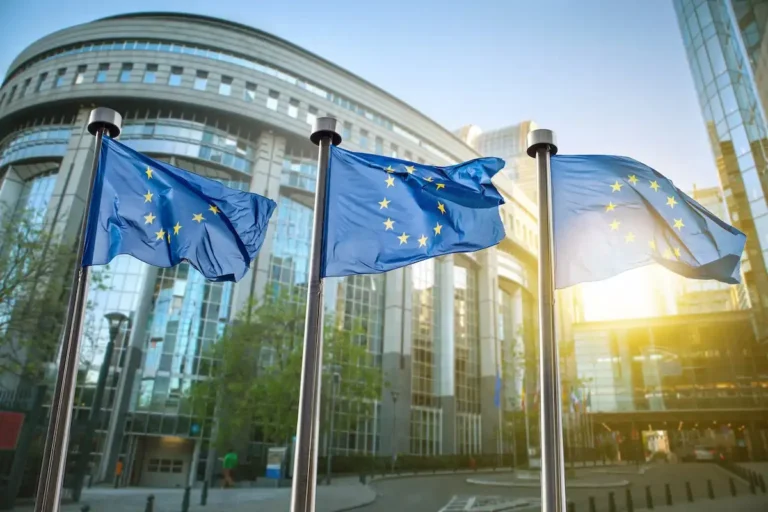Europe’s bureaucrats continue to do their best to ensure Apple is forced to sell the world’s worst operating system, announcing plans to force Apple to open up its systems even more than it already has.
In a triumph of bureaucratic doublespeak, the European Union doesn’t argue that it’s attempting to force the issue. Instead, it says it wants to “assist” Apple. “Today, the European Commission has started two specification proceedings to assist Apple in complying with its interoperability obligations under the Digital Markets Act (‘DMA’),” the group says. Then it goes on to insist: “Under the DMA, Apple must provide free and effective interoperability to third party developers and businesses with hardware and software features controlled by Apple’s operating systems iOS and iPadOS, designated under the DMA.”
Bureaucrats versus innovators
To some extent, this might not represent too big a change. The EU has been actively pursuing its edicts against the company; now, the DMA gives regulators new power in the form of specification proceedings. Under the DMA, these proceedings are prescriptive.
What that means is Europe might, “adopt a decision specifying the measures a gatekeeper has to implement to ensure effective compliance with substantive DMA obligations, such as the interoperability obligation.”
In other words, the rules effectively give regulators the power to tell Apple what it must do to comply with the DMA or face huge fines.
What the Commission is looking at
The latest news is that the European Commission has launched two proceedings against Apple:
- The first proceeding focuses on “iOS connectivity features and functionalities, predominantly used for and by connected devices.” (That is everything from watches to headsets.) These devices depend on being interoperable with smartphones and their operating systems. “The Commission intends to specify how Apple will provide effective interoperability with functionalities such as notifications, device pairing and connectivity.”
- The second proceeding focuses on the process Apple has set up to address interoperability requests submitted by developers and third parties. Europe wants that process to be “transparent, timely, and fair.” It wants this so all developers have an “effective and predictable path to interoperability and are enabled to innovate.”
(Critics like me may think this means non tech-savvy bureaucrats have suddenly been elevated to the status product designers, with all the lack of nuance that almost certainly entails. Will future operating systems sold in Europe all suffer from the fate of being designed by committee?)
There may be more clarity
If there is anything good in Europe’s latest wheeze, it is clarity. In a sense, it formalizes ongoing dialog between Europe and Apple regarding DMA compliance.
Margrethe Vestager, executive vice president in charge of competition policy, said: “This process will provide clarity for developers, third parties and Apple. We will continue our dialogue with Apple and consult third parties to ensure that the proposed measures work in practice and meet the needs of businesses.”
While that may sound a little like escaping gas, it hopefully means Apple and Europe will be able to clarify the rules around the DMA enough to ensure new products and services launch in Europe in ways that comply with the law.
This clarity might also enable Apple Intelligence to launch in Europe, hopefully without that launch becoming a green light to attack on personal privacy. (In this regard, the DMA may conflict fatally with GDPR.)
What does Europe want?
What Europe wants we will learn in a few months’ time, when the Commission tells Apple what it must do to comply. Meanwhile, of course, Europe reserves the right to levy fines against the company.
These fresh demands come in the context of Apple’s continued attempts to tweak its operating systems and business models to meet Europe’s existing demands. While that effort remains a work in progress, as illustrated by the company’s recent changes in how it handles browser choice in Europe, it is ongoing. As I understand it, Apple is working as closely as it can with European regulators to find some way toward compliance that still leaves customer privacy and security intact — while still giving it a viable business in the EU.
Is Europe a worthwhile iPhones market?
The need to ensure Apple’s business is viable might turn out to be a very big deal. Europe has already fined Apple billions to protect the interests of European firm Spotify. It has clawed back (as Apple sees it) $14 billion in tax money. And yet, at least according to John Gruber, the EU contributes perhaps 7% of Apple’s global revenue.
This opens up new questions.
- At what point will it make sense for Apple to cease sales of iPhones and iPads in the region, rather than risk more of these eye-watering fines?
- If Apple does that, how is the Commission representing European consumer rights by making the cost of Apple doing business there higher than the consequences of withdrawing from the region?
- What impact would such an exit have on the multi-billion dollar app economy across the region, particularly as Apple continues to invest in fast-emerging markets elsewhere on Terra Ferma.
- In 2020, Apple supported more than 1.8 million jobs in Europe and in the five years prior to that it spent over 65 billion Euros with suppliers and partners across the region. What would be the economic consequences of Apple focusing outside the bloc?
With all this in mind, I can’t help but think that perhaps the real gatekeeper harming consumer interests in this case is actually Vestager.
Please follow me on Mastodon, or join me in the AppleHolic’s bar & grill and Apple Discussions groups on MeWe.




0 Comments